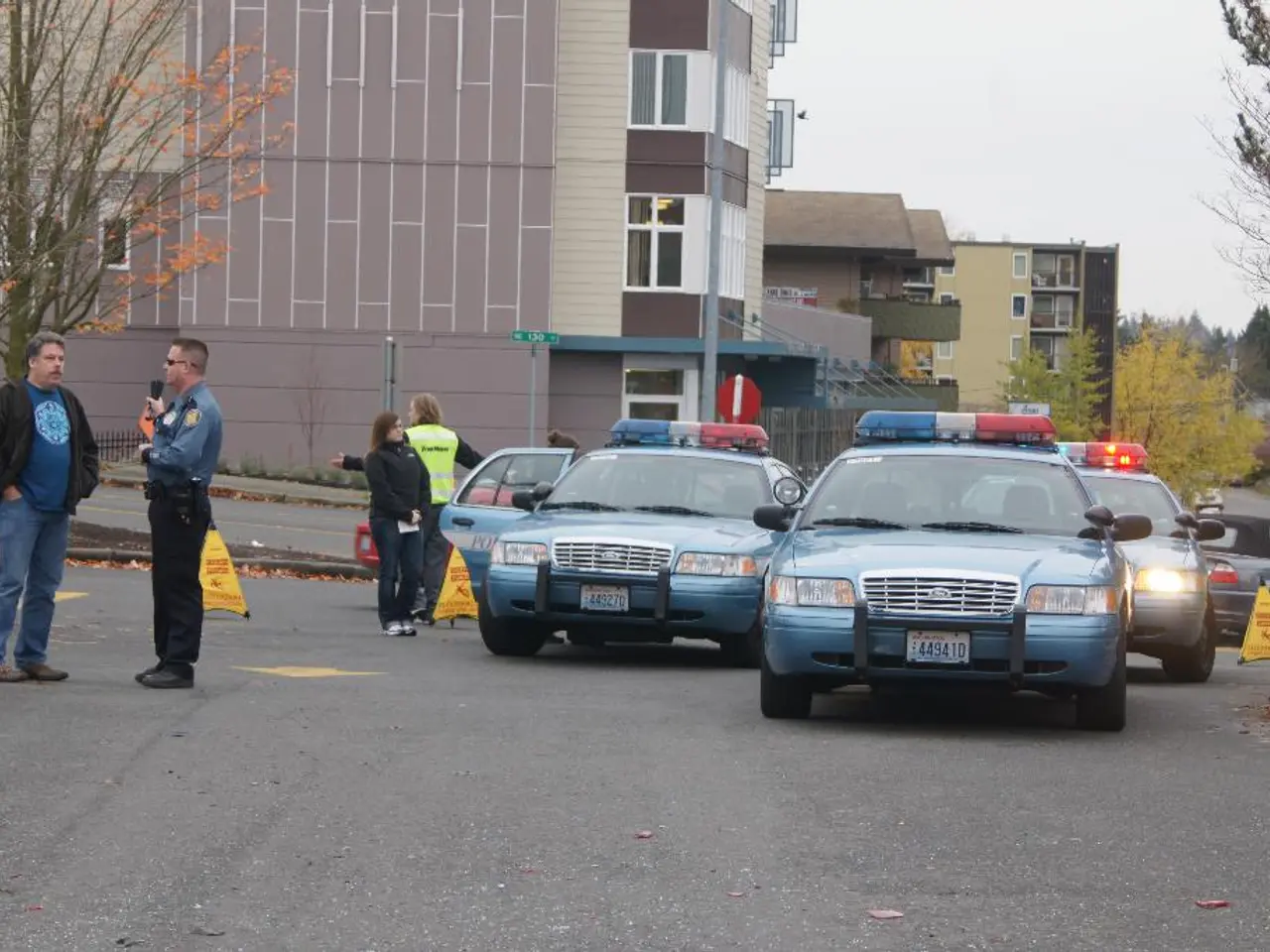Emergency service operators encounter numerous instances yearly due to drivers inadvertently dialing 999.
In the quest to enhance emergency services, the eCall feature installed in cars and vans across the UK has proven to be a game-changer. This system, designed to automatically alert emergency services in the event of a crash, transmits exact location and crash details, significantly reducing emergency response times and improving survival rates [1][5].
However, a common problem with eCall is a high rate of false alarms. According to a report by the RAC Foundation, about two-thirds of eCall activations were found to be false alarms, often due to accidental misuse, system errors, or poor interface design [3]. These false alarms are a significant concern because they consume emergency response resources unnecessarily and may undermine the system’s overall effectiveness [3].
One of the contributors to the high volume of false activations is motorists pressing the eCall SOS button to ensure it is working. The location of the eCall SOS button varies in vehicles, often found in the ceiling console, behind a pop-out hatch, or on the centre console [4]. If you are unsure of its position, refer to your car owner’s manual for guidance.
Another challenge is the system’s reliance on older mobile networks (2G/3G), which are being discontinued, affecting reliability [3]. National Highways states that the eCall system will carry out a self-test each time the vehicle is started, eliminating the need for manual checks [6].
Despite these challenges, the benefits of eCall are undeniable. The system can provide emergency services with better information more quickly during incidents on smart motorways without hard shoulders [2]. Additionally, eCall data can assist insurance companies by providing transparent, real-time crash information, reducing fraud and speeding up claims processing [1].
Dr Reed, in a report, called for urgent attention to ensure that lives are not at risk from life-saving technology failing when it’s needed most, due to issues such as the historical reliance on old mobile phone networks being turned off [7]. Addressing false alarms and upgrading network infrastructure are critical to maximizing eCall’s life-saving potential [3][5].
In conclusion, the eCall feature offers significant benefits in terms of emergency response times and survival rates. However, the high rate of false alarms and the system’s reliance on outdated mobile networks are issues that need immediate attention. By addressing these challenges, we can ensure that the eCall system continues to save lives and improve recovery outcomes.
References:
[1] RAC Foundation. (2021). eCall: The future of emergency services. Available at: https://www.racfoundation.org/research/reports/ecall-the-future-of-emergency-services/
[2] Department for Transport. (2020). eCall: Automatic emergency call system. Available at: https://www.gov.uk/emergency-sms
[3] RAC Foundation. (2020). eCall: A life-saving technology under threat. Available at: https://www.racfoundation.org/media/news/ecall-a-life-saving-technology-under-threat/
[4] RAC Foundation. (2020). eCall: A life-saving technology under threat. Available at: https://www.racfoundation.org/media/news/ecall-a-life-saving-technology-under-threat/
[5] European Commission. (2020). eCall: The European in-car emergency call system. Available at: https://ec.europa.eu/transport/modes/road/vehicles/ecall_en
[6] National Highways. (2021). eCall: Automatic emergency call system. Available at: https://www.gov.uk/emergency-sms
[7] Reed, J. (2020). eCall: A life-saving technology under threat. Available at: https://www.racfoundation.org/media/news/ecall-a-life-saving-technology-under-threat/
- To reduce false alarms and improve the overall effectiveness of the eCall system, motorists should familiarize themselves with the location of the eCall SOS button in their vehicles, as accidentally pressing it is a common cause of false activations.
- Upgrading the eCall system's network infrastructure from older mobile networks (2G/3G) to more reliable ones is crucial to ensure the system's reliability and efficiency in emergency situations.
- Incorporating the eCall feature in cars and vans can significantly enhance emergency services by providing quicker and more accurate information during crashes, potentially saving lives and improving recovery outcomes.
- Insurance companies can benefit from the eCall system by receiving transparent, real-time crash data, which can help curb fraud and expedite claims processing. However, addressing the issues of false alarms and outdated mobile network reliance is essential to maximizing the system's life-saving potential.




